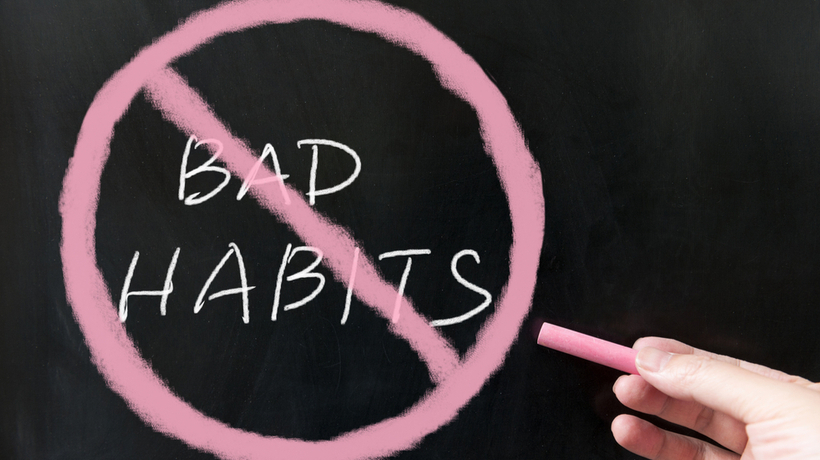We all have habits – they help us get through the day. Usually. Some habits, on the other hand, are not helping but hurting us. It would be nice if you could just pick and choose your habits, but they’re powerful. Changing your habits takes time and intentionality, but there are things you can do to break them down:
Map out your triggers.
What gives you the itch to sneak a Snickers or smoke a cigarette? This is your trigger. “By identifying your triggers, you have a way of pushing back and not having that autopilot kick in,” says Robert Taibbi L.C.S.W. This could be difficult, but he suggests working backward from your habit. What led up to it? The cue could even be a place; when you walk past the front desk, you grab a chocolate. “You’re most likely to relapse in the context of when you’ve done it before,” Elliot Berkman, director of the University of Oregon’s Social and Affective Neuroscience Lab. Changing up your environment can help eliminate triggers. “You’re going into new contexts and situations, so you don’t have those same cues—it’s a chance to form new habits,” he says. Finding other ways to eliminate triggers from your daily life can also help.
Be truthful about how it makes you feel.
Once you’ve mapped your habits, be mindful of them. “I am asking you to pay attention to how you feel when you partake in your habit,” says Judson Brewer MD Ph.D., Addiction Psychiatrist and Mindfulness and Behavior Change Researcher, “How rewarding is it in the moment…?” You may realize that overeating makes your stomach hurt, or that cigarettes taste toxic. Write down these revelations to solidify them in your mind. When your craving next comes, instead of indulging, replace it with curiosity about why you are having that craving in the first place, and what it feels like in your body and your mind. “Ultimately, curiosity feels better in the moment and is much more enjoyable than the rumination that often occurs after giving into a bad habit,” says Brewer.
Replace the bad habit with a good one.
“Breaking habits isn’t about stopping but substituting,” says Taibbi. Since we are action-oriented creatures, it’s hard to stop a habit, says Berkman, so substitute a new habit in for the old one. Instead of not drinking anything when you get home from work, replace your wine with a mocktail or your favorite non-alcoholic beverage. Replace your triggers with “prompts” that remind you to engage in your new, healthier habits. “These are reminders to help you break the pattern by creating positive triggers and alerts to keep you on track,” Taibbi says. Put fruit on the counter or your running shoes by your bed to find in the morning
Have a support system in place.
Taibbi suggests building in a payoff into your new habit to support yourself. Don’t reward quitting smoking with a cigarette, but maybe one month smoke-free deserves a trip to the spa. If you need additional support, enlist a friend or family member to encourage you! Maybe they can work out with you, or just be someone to call when you feel discouraged. However, if you’re really struggling, consider seeking professional help. A doctor may “prescribe meds for the underlying anxiety and depression, a therapist who cannot only help you unravel the sources and drivers of your habits but also provide some steady support and accountability,” says Taibbi.
Sources:
5 Science-Approved Ways to Break a Bad Habit
How to Break Up with Your Bad Habits



